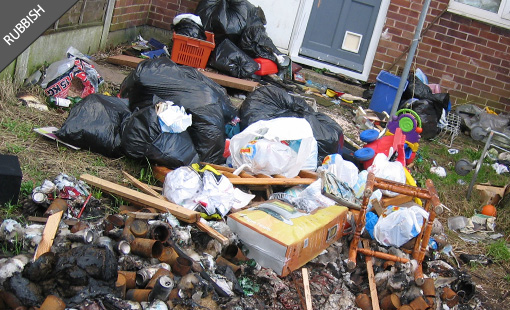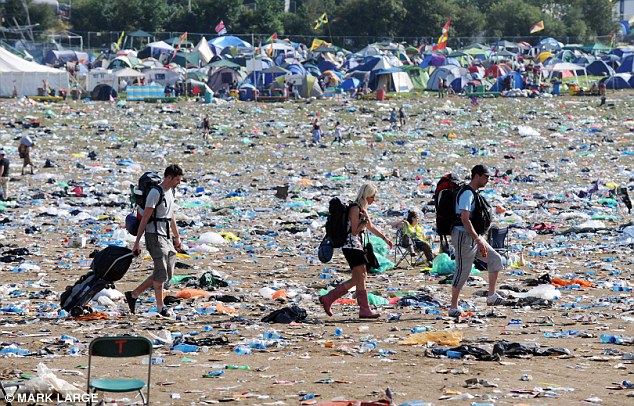- Mar 7, 2014
- 45,153
- 9,158
- 2,030
There are different mentalities in the world.
There are those who like their world to be like this:

And others who like their world to be like this:

The right seem to like the latter.
But here are some of the problems.
‘The windscreen phenomenon’ - why your car is no longer covered in dead insects
"
Wildlife experts have been warning about the alarming decline in insects for decades.
But the fall in numbers of bugs in Britain has now reached such a troubling extent that even motorists are noticing that their windscreens are clear of squashed flies, gnats, moths and wasps."
Mao, the Chinese dude, decided one day (because he could and because he hated intellectuals) that the fucking birds needed to be killed because the birds at the crops. I mean, it's the sort of logic of an idiot who doesn't like intellectuals. So he had his people go out and kill the birds. Then the insects ate the crops because the birds weren't eating the insects. Then Mao realized he was a dick.
Insects are important. There's something called a food chain. Without insects the birds will die, and without birds and insects flowers and crops don't pollinate. That means we don't get food, the cows don't get food, the pigs don't get food, we all die.
We're also destroying the seas. A change in PH levels of the seas is nothing new, however over such a short period of time, with us humans depopulating the seas of fish, we could end up having massive problems.
Things like global warming you might not think are an issue because you can't get your head around millions of years worth of data that isn't complete. But what we're seeing is something entirely different. It's something that's happening and changing, and we can kind of predict what will happen.
"An amateur German group called the Krefeld Entomological Society has been monitoring insect numbers at 100 nature reserves in Western Europe since the 1980s. Although there were the annual fluctuations they discovered that by 2013 numbers began to plummet by nearly 80 per cent."
Okay, 80% less insects in 30 years. That's a lot, we've killed off 4/5ths of the insects. At the rate we're going, we'll have a major problem in the next 30 years.
"Since 2006, beekeepers in Britain have lost about a third of their managed bee colonies each year largely due to the loss of flower-rich grassland which has declined by 97 per cent from the 1930s, and the increased use of insecticides on crops."
Bees are declining massively. 97% is a massive disaster already.
"The most recent RSPB State of Nature report, which brings together findings from 50 organisations, suggests there has been a 59 per cent decline in insects in the UK since 1970."
That's 60% in 40 years, even that is a disaster, another 40 years and how many insects do you have? Not many.
There are those who like their world to be like this:

And others who like their world to be like this:

The right seem to like the latter.
But here are some of the problems.
‘The windscreen phenomenon’ - why your car is no longer covered in dead insects
"
Wildlife experts have been warning about the alarming decline in insects for decades.
But the fall in numbers of bugs in Britain has now reached such a troubling extent that even motorists are noticing that their windscreens are clear of squashed flies, gnats, moths and wasps."
Mao, the Chinese dude, decided one day (because he could and because he hated intellectuals) that the fucking birds needed to be killed because the birds at the crops. I mean, it's the sort of logic of an idiot who doesn't like intellectuals. So he had his people go out and kill the birds. Then the insects ate the crops because the birds weren't eating the insects. Then Mao realized he was a dick.
Insects are important. There's something called a food chain. Without insects the birds will die, and without birds and insects flowers and crops don't pollinate. That means we don't get food, the cows don't get food, the pigs don't get food, we all die.
We're also destroying the seas. A change in PH levels of the seas is nothing new, however over such a short period of time, with us humans depopulating the seas of fish, we could end up having massive problems.
Things like global warming you might not think are an issue because you can't get your head around millions of years worth of data that isn't complete. But what we're seeing is something entirely different. It's something that's happening and changing, and we can kind of predict what will happen.
"An amateur German group called the Krefeld Entomological Society has been monitoring insect numbers at 100 nature reserves in Western Europe since the 1980s. Although there were the annual fluctuations they discovered that by 2013 numbers began to plummet by nearly 80 per cent."
Okay, 80% less insects in 30 years. That's a lot, we've killed off 4/5ths of the insects. At the rate we're going, we'll have a major problem in the next 30 years.
"Since 2006, beekeepers in Britain have lost about a third of their managed bee colonies each year largely due to the loss of flower-rich grassland which has declined by 97 per cent from the 1930s, and the increased use of insecticides on crops."
Bees are declining massively. 97% is a massive disaster already.
"The most recent RSPB State of Nature report, which brings together findings from 50 organisations, suggests there has been a 59 per cent decline in insects in the UK since 1970."
That's 60% in 40 years, even that is a disaster, another 40 years and how many insects do you have? Not many.




